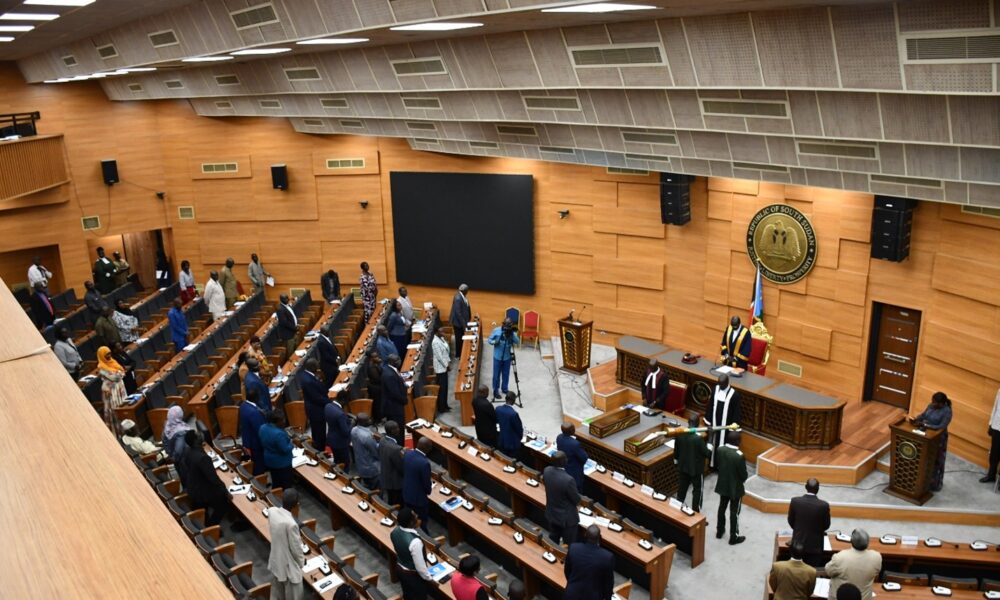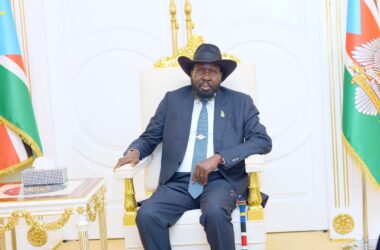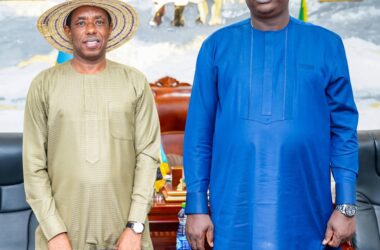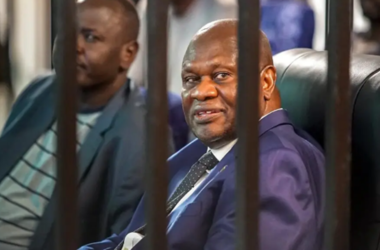By Alan Clement
The Transitional National Legislative Assembly has adopted a landmark motion on the Declaration of Peace and Cessation of War (DPCW) signaling South Sudan’s continued commitment to peace, human rights, and non violence.
The motion, presented by Bona Deng Lawrence, Chairperson of the Standing Specialized Committee on Peace and Reconciliation, sought to enshrine the DPCW as a national resolution, reinforcing South Sudan’s commitment to peace, human rights, and nonviolence.
The declaration, originally proclaimed by the South Korean NGO Heavenly Culture, World Peace, Restoration of Light (HWPL) in 2016, was signed by President Salva Kiir on May 15, 2024, ahead of its formal deliberation in Parliament.
The motion outlined ten articles and 38 clauses, which emphasize the prohibition of force, peaceful dispute resolution, disarmament, and the institutionalization of a culture of peace through education and inclusive governance and aligns with South Sudan’s Transitional Constitution (2011), the UN Charter, the African Charter on Human and Peoples’ Rights, and previous peace agreements including the CPA (2005) and R-ARCSS (2018).
Before being finally adopted, the motion sparked vigorous debate among lawmakers who expressed a mixt of support and caution during the 15th Ordinary Sitting of the TNLA on Monday September 15, 2025.
Bol Joseph Agau of Lakes State questioned the document’s origin, noting that it stems from a South Korean civil society organization rather than the UN or African bodies, and raised concerns about procedural approvals and enforceability.
“This document is not known by the Ministry of Foreign Affairs and International Cooperation. How it found its way here is questionable,” he said, expressing concern over its enforceability and international recognition.
“The Executive did not discuss it. How do you give it to the President before scrutiny?” he asked.
David Yien Bilieth highlighted the ongoing challenges of implementing peace in South Sudan, pointing to years of conflict and emphasizing that adoption of the DPCW should leave room for inclusivity and reconciliation.
“If you want to make peace, don’t demand 100 per cent loss. Leave room for other parties to come in,” he said suggesting that other parties should potentially be given at least a 40 per cent representation in governance.
“We are talking about peace, but people are not abiding by it. There is a need for the spirit of harmonization and togetherness,” he urged.
However, other lawmakers, including Prof. Peter Aduok and Bol Pio, stressed the urgent need for peace. “All we need is peace. We cannot afford to remain behind,” Prof. Aduok said,
while Bol Pio of Northern Bahr el Ghazal framed the declaration as a beacon of hope.
“When our people hear that the House is declaring peace, this is a hope. All of us here sign the declaration for peace,” he affirmed.
The Assembly’s recommendations include promoting peace-oriented governance, repurposing military spending for development, expanding peace education, and establishing a multi-sectoral task force and parliamentary body for peace advocacy and research.
Lawmakers noted that the adoption of the DPCW is a symbolic but significant step in embedding a culture of peace into South Sudan’s national identity and governance, emphasizing that peace is not only about ending conflict but also about sustaining harmony across communities.
Questions still remain about its implementation and integration into South Sudan’s broader peace architecture but nonetheless, the resolution represents a landmark effort to embed peace into the nation’s identity and governance.




